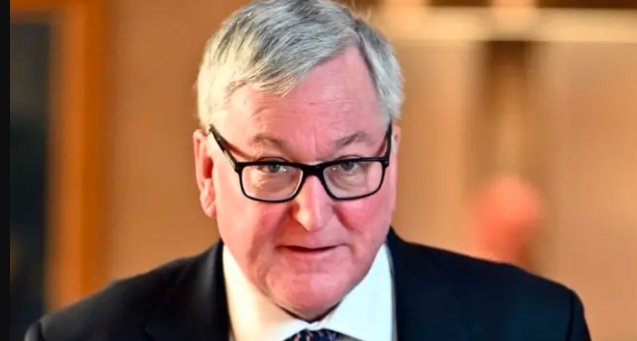After more than a quarter-century with the SNP, Inverness and Nairn’s Fergus Ewing has declared he’ll contest the 2026 Scottish Parliament elections as an independent candidate—citing deep disillusionment with his former party’s direction and processes.
Ewing’s move shakes up one of Scotland’s most high‑profile seats, turning a safe SNP stronghold into a potential battleground. His 26 years at Holyrood have been marked by fiery debates and outspoken independence on issues from oil and gas to road dualling.
A Storied SNP Career Comes to a Fractious End
Fergus Ewing first won the Inverness and Nairn seat in 1999, the year Holyrood convened for the first time. Over his tenure, he held cabinet roles including Rural Affairs Secretary, shaping agricultural and fishing policy across the Highlands.
Yet, by March 2025, Ewing announced he wouldn’t seek SNP nomination—blaming the party for becoming “fractious and tribal.” He lamented that devolution itself was being undermined by unchecked central power in party leadership.
One-sentence paragraph.
His decision to run independently signals both personal conviction and tactical risk: splitting the nationalist vote could open the door to rival parties in a constituency that has delivered double‑digit majorities for the SNP at every election since devolution began.

Clashes Over Roads, Recycling and Reform
Ewing’s break with the SNP didn’t happen overnight. Key flashpoints included:
-
A9 and A96 dualling: Frustration over delays and squabbles with Holyrood ministers
-
Deposit Return Scheme: Concerns about costs to small retailers and rural communities
-
Gender Recognition Reform: Opposed the proposed Gender Recognition Act changes
-
Marine Protected Areas: Criticized blanket conservation zones affecting fishing fleets
He has also been a vocal supporter of Scotland’s oil and gas industry, arguing energy security and local jobs were being sidelined in the green transition debate.
One-sentence paragraph.
In 2023, he defied party whips to back a no‑confidence motion against Green minister Lorna Slater, resulting in a brief suspension from the SNP group at Holyrood. That episode crystallized his reputation as a maverick willing to break ranks on principle.
Can an Independent Win? The Electoral Math
Ewing’s declaration poses complex questions about voter loyalty and electoral dynamics in Inverness and Nairn. Here’s a snapshot of the 2021 Holyrood results in the constituency:
| Party | Votes (%) | Change from 2016 | Seats Held |
|---|---|---|---|
| SNP | 53.4% | +2.1 | Constituency seat |
| Labour | 22.7% | -3.3 | None |
| Conservatives | 14.5% | +1.2 | None |
| Liberal Democrats | 6.8% | -0.5 | None |
| Greens | 2.6% | +0.3 | None |
One-line paragraph.
With the SNP vote potentially split between party‑loyal supporters and Ewing’s personal following, the seat could become highly competitive. Local polling suggests Ewing retains strong name recognition and respect for his constituency work, but an independent run may not guarantee a victory without broader campaign machinery.
What Voters Are Saying—Passion Meets Skepticism
Conversations in Inverness coffee shops and village halls reveal a mix of admiration, concern, and outright confusion:
-
“He’s always stood up for farmers and fishers here,” says a crofter from Nairn. “I respect that.”
-
“I backed the SNP cause, not the man,” counters a 22‑year-old student. “Now I don’t know who to vote for.”
-
“Seems like politics as usual—big personalities, not policies,” grumbles a shopkeeper.
One-sentence paragraph.
While some residents applaud Ewing’s independence, others worry the move undermines the very devolution and collective strategy he claims to defend. Young voters, keen on progressive policies, may lean away from a candidate perceived as resistant to social reform.
A New Chapter at Holyrood—Implications Beyond a Single Seat
Ewing’s switch to independent status is more than a local drama; it signals broader tensions within the SNP as it grapples with policy, identity, and leadership style ahead of the next election.
Here’s what’s at stake:
• Party unity: Can the SNP keep its base intact when high‑profile figures depart?
• Policy direction: Will internal debate on energy, transport, and social issues intensify?
• Devolution credibility: Independent candidacies test the strength of Scottish self‑government.
• Electoral math: Seats like Inverness may tip the overall parliamentary balance.
One-sentence paragraph.
If Ewing wins, Holyrood will see a prominent former minister sitting outside party lines—potentially emboldening other dissidents. If he loses, the SNP could reclaim the seat with a narrower margin, but the episode may leave scars on local trust.


















